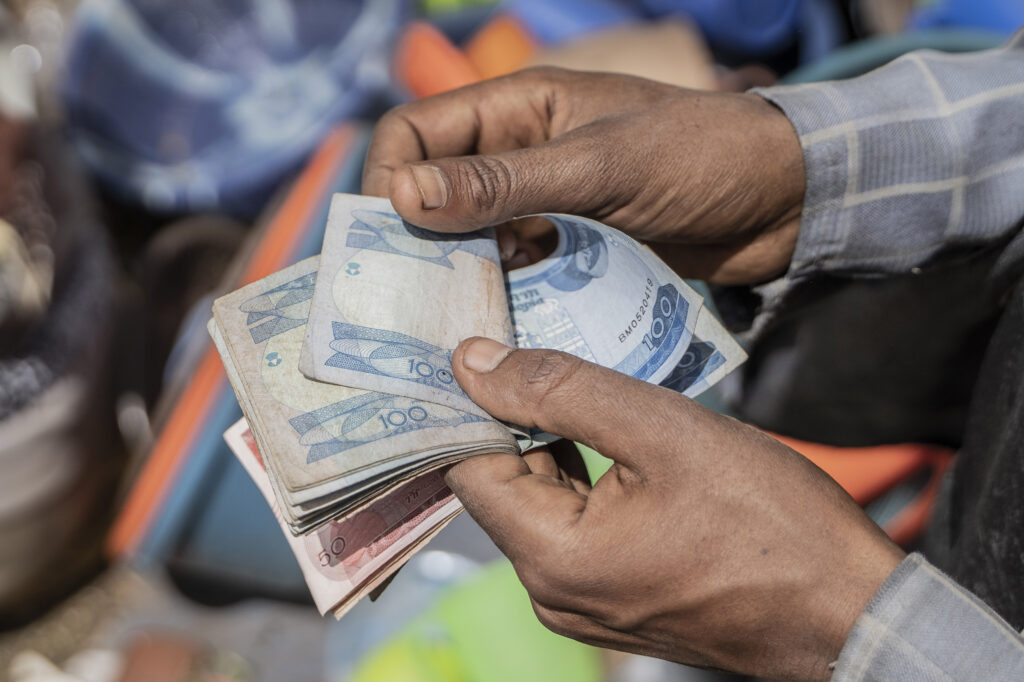ADDIS ABABA, Ethiopia – Prices in Ethiopia’s capital, Addis Ababa, are spiraling out of control following the government’s introduction of a flexible exchange rate policy last month.

Businesses are struggling to keep up with the rapidly changing market, leading to widespread anxiety among consumers and a surge in hoarding.
Since the policy change, the Ethiopian birr has lost 60% of its value against the U.S. dollar, a devaluation that has forced businesses to adjust prices almost daily.
This economic volatility has been particularly evident at the Samra Hotel in Bole, a leafy suburb of Addis Ababa, where menu prices now change from one moment to the next.
“Previously, prices would be updated bimonthly but nowadays it’s on a daily basis, if not by the hour,” said Rahel Teshome, an employee at the hotel, highlighting the constant shifts in the market landscape.
Across the city, supermarkets are reportedly hoarding goods in warehouses and selling only small quantities to avoid punishment from city authorities, who have vowed to crack down on such practices.

Consumers looking to buy in bulk are being forced to pay inflated prices, often for products they are directed to select from limited stock.
In Merkato, Addis Ababa’s largest open-air market, guards have been stationed in an effort to prevent businesses from further inflating prices.
Last week, police raids led to the confiscation of 800,000 liters (210,000 gallons) of edible oil from hoarders, which was later distributed to local cooperatives at previous prices.
Over 3,000 stores suspected of hoarding have been shuttered across the city.
The Addis Ababa City Trade Bureau has warned that further actions will be taken against those exploiting the economic situation by manipulating prices and hoarding essential goods.
The Associated Press report



